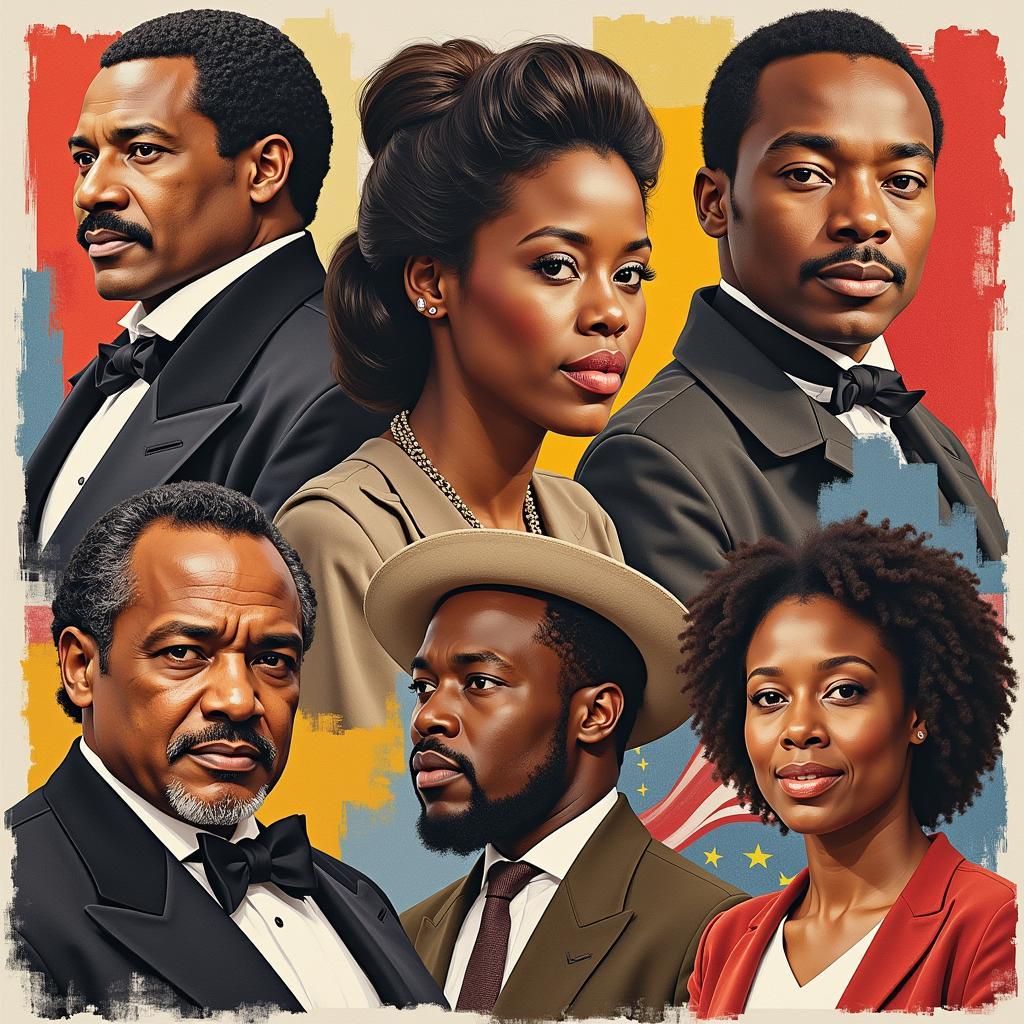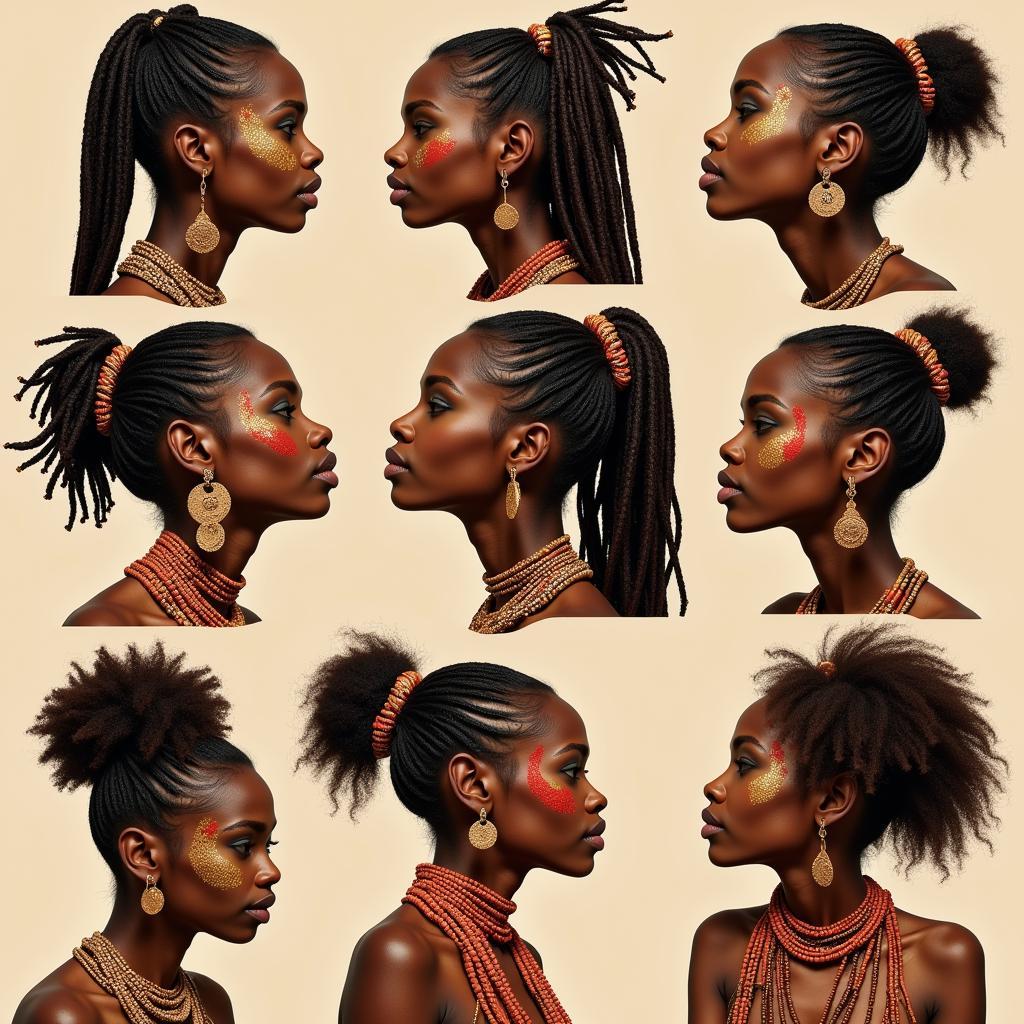The Complex Story of the Term “African American Nation”
The term “African American Nation” can evoke a wide range of interpretations, sparking important conversations about identity, history, and belonging. While not referring to a geographically defined nation-state, it speaks to the rich cultural tapestry and shared experiences of African Americans, highlighting their journey within the broader narrative of the United States.
 African American Community Celebration
African American Community Celebration
A Nation Within a Nation: Exploring Identity and History
The concept of an “African American nation” speaks to the unique position of African Americans as a group who have simultaneously been integral to the formation of the United States while also facing systemic oppression and exclusion. This duality has fostered a strong sense of community, resilience, and cultural identity that transcends geographical boundaries.
From the forced displacement during the transatlantic slave trade to the ongoing struggle for civil rights, African Americans have forged a collective narrative shaped by both hardship and triumph. This shared history, interwoven with the cultural traditions brought from Africa and adapted over generations, forms a powerful foundation for a sense of nationhood.
 Influential African American Figures
Influential African American Figures
One cannot discuss the idea of an “African American nation” without acknowledging the African American national anthem, “Lift Every Voice and Sing.” This powerful anthem, often referred to as the “Black National Anthem,” embodies the spirit of resilience, hope, and the ongoing pursuit of equality that defines the African American experience.
Cultural Expressions: Music, Art, and the Power of Storytelling
The richness of African American culture is deeply intertwined with the concept of an “African American nation.” From the soulful rhythms of jazz and blues to the vibrant expressions of art and literature, these creative outlets have served as powerful tools for storytelling, community building, and social commentary.
Consider the impact of the Harlem Renaissance, a period of unparalleled artistic and intellectual flourishing within the African American community. This era gave birth to groundbreaking works of literature, music, and visual art that challenged societal norms, celebrated Black identity, and amplified the voices of a community striving for recognition and equality.
Even the act of African American kneeling for the national anthem, though often met with controversy, can be interpreted as a powerful expression of this complex relationship with nationhood. It reflects a desire to spark dialogue, confront injustice, and advocate for a more inclusive and equitable society.
Looking Forward: Embracing Diversity and Shared Futures
The notion of an “African American nation” should not be misconstrued as a call for separation but rather as a recognition of the unique cultural identity and shared experiences that bind this community. It’s about acknowledging the past while striving for a future where equality and justice are paramount.
As we move forward, it is essential to engage in open and honest conversations about race, identity, and belonging. Understanding the historical context and cultural nuances of the term “African American nation” allows us to appreciate the complexities of the African American experience and work towards a more inclusive and just society for all.
FAQs about the Concept of an “African American Nation”
1. Does “African American nation” imply a separate nation within the United States?
No, it’s not about advocating for a separate nation-state. Instead, it recognizes the shared history, culture, and collective consciousness that unite African Americans.
2. Why is the term “nation” used instead of “community” or “group”?
“Nation” carries a deeper historical and sociological weight, emphasizing the shared struggles, triumphs, and cultural identity that transcend individual experiences.
3. How does the idea of an “African American nation” contribute to conversations about race and equality?
It encourages understanding the unique position of African Americans within the broader American narrative, acknowledging their contributions while addressing the systemic barriers they continue to face.
4. How does the concept of an “African American nation” connect to the experiences of other marginalized groups?
It highlights the importance of recognizing and valuing diverse cultural identities within larger societies, promoting inclusivity and understanding.
5. What are some ways to learn more about African American history and culture?
Engaging with literature, music, art, and films created by African Americans is a great starting point. Supporting African American-owned businesses, visiting museums and cultural centers, and participating in community events are also valuable ways to learn and connect.
Remember, exploring the complexities of identity and belonging is an ongoing journey. Let’s continue to engage in meaningful dialogue, challenge our perspectives, and work together towards a more inclusive and equitable future.
Need further assistance? Contact us at:
Phone: +255768904061
Email: kaka.mag@gmail.com
Address: Mbarali DC Mawindi, Kangaga, Tanzania.
Our dedicated customer support team is available 24/7 to assist you.



